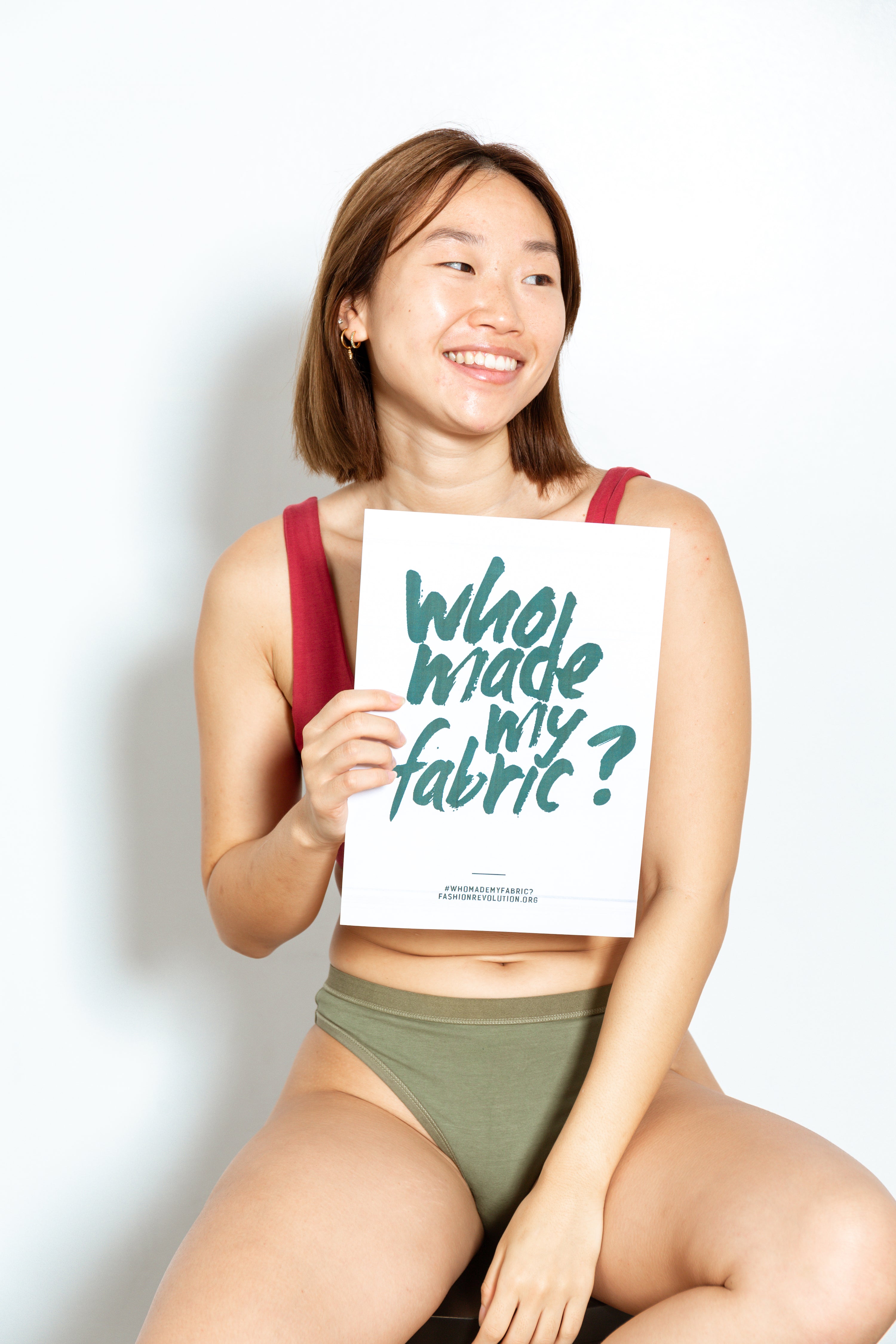No Products in the Cart

Name: Catherine Jia
Occupation: Slow Fashion/Lifestyle Content Creator and Advocate
Age: 26
___
Where were you born? What is your heritage?
Born and raised in Sydney Australia but my heritage is Chinese.
Tell us a little bit about what you do?
I'm the content creator behind IG Project.Catherine, a platform that makes people rethink their relationship with things and to invest in timeless, high quality and ethically made products to reduce their environmental impact.
What does the Fashion Revolution movement mean to you personally?
The fashion revolution empowers us to make better and informed decisions about the clothes we buy and makes us think differently about our relationship with the clothes we already own. With the rise of fast fashion, it has changed the way people shop. People shop to keep up with the latest trends, to get a dopamine boost, and it provides instant gratification. Fast fashion is an addiction that it is hard to break up with. And what often happens, once the trend ends in a couple of weeks it gets thrown away and ends up in our landfill. That's why the fashion industry is the third-largest pollutant on our planet. This happens because we are so removed from the reality about the impacts of our clothes on the planet, our health and the people that make our clothes. So, the Fashion Revolution provides exposure and transparency to what’s happening so that as a community together we can drive for a cultural and systematic change in the fashion industry.
This year's Fashion Revolution theme is all about fashion, money, power - do you think the fashion industry has a positive or negative impact on international power dynamics? Why?
It's a bit of both. You see, we currently have two approaches to fashion - Fast Fashion vs Slow Fashion. Fast fashion is focused on meeting consumer demand by rapidly producing high volumes of clothing which is powered by extreme labour and natural resources exploitation. However, we are positively seeing a rise in sustainable and slow fashion. It is calling on for better sustainability practices and ethical behaviours throughout the supply chain due to an increase in demand for brands to become more transparent. According to the Business Research Company (2020), the sustainable fashion market is expected to grow from $6.35 billion in 2019 to $8.25 billion in 2023. Businesses are realising that consumer's behaviour towards fast fashion is changing as we become more aware of sustainability and the impact that fast fashion has on the environment and the people that make our clothes. The fashion industry is evolving yet again as it slows down in pace and heads towards a sustainable future.
How do you think we could harness the fashion industry to have a fairer and more balanced global economy?
As a consumer, we need to keep demanding brands for transparency and more information about the origins and sustainability of their products so that they will realise that transparency is not an option anymore, it's a must. In addition, we need to continually demand our government to enforce tougher legislation on brands to be more transparent about their social and environmental efforts throughout their supply chain. It's really now up to governments and businesses to step up and take better action.
What do you normally wear every day?
Trousers, unbuttoned oversized shirt and a singlet top underneath.
What is your favourite piece in your wardrobe?
Trousers - they're comfortable, practical, and flattering on any figure.
Do you have any favourite sustainable brands, or favourite second-hand shops?
My favourite second hand shop is Vinnies on Bronte Road - they have a huge designer section which is always filled with goodies.
Do you have a style icon?
Chloe Helen Miles - She even followed me on Tiktok the other day and we've been chatting on dm's since!
What is your favourite style of Mighty Good Basics?
Bikini Brief